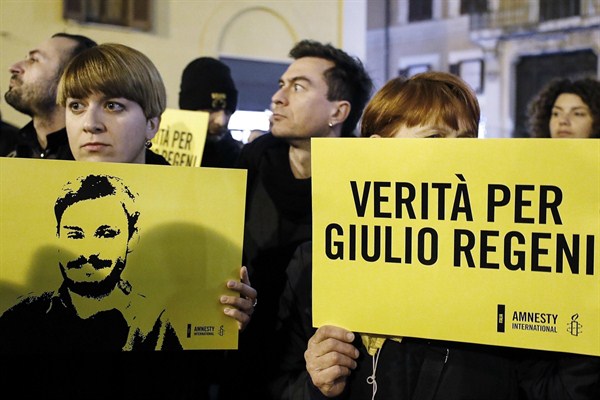Italian prosecutors earlier this month named five Egyptian security officials as suspects in the murder of Giulio Regeni, an Italian graduate student whose mutilated body was found in a roadside ditch outside Cairo in February 2016, nine days after he disappeared. Regeni had been conducting research on labor unions in Egypt for a doctorate at Cambridge University. For nearly three years, investigators in Rome have been frustrated by the lack of cooperation from their Egyptian counterparts, which led to the extraordinary decision to publicly identify Egyptian government agents as suspects. In an email interview with WPR, Timothy Kaldas, a nonresident fellow at the Washington, D.C.-based Tahrir Institute for Middle East Policy, discusses the Regeni case’s ongoing implications for Italy and Egypt’s ties and the brutal tactics that the powerful Egyptian security forces often employ with impunity.
World Politics Review: What is behind the delay in resolving the Regeni case, and to what extent has alleged foot-dragging by Egyptian officials damaged Egypt’s relationship with Italy?
Timothy Kaldas: Italian authorities complain that Egypt has not been forthcoming in cooperating with their investigation. This is not surprising, given the mounting evidence showing that Egyptian government agents spied on Regeni and almost certainly tortured him to death.

